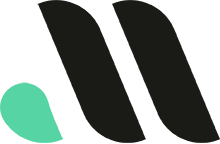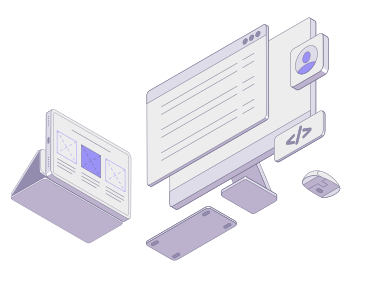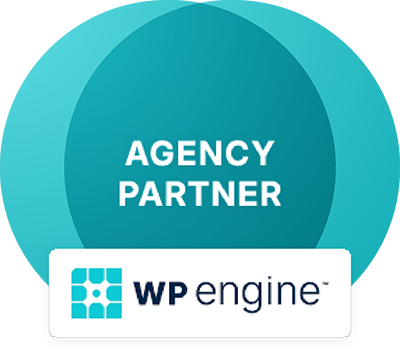




How to Protect Your WordPress Site from Hackers: Best Practices and Essential Tools
WordPress is the world’s most popular content management system (CMS), powering over 40% of all websites. Its widespread use, however, makes it a prime target for hackers. Understanding the common vulnerabilities and how to safeguard your site is crucial for maintaining a secure online presence. At Masthead Technology, we specialize in WordPress website development, maintenance, and support, ensuring your site remains secure and functional. Here’s how to protect your WordPress site from hackers and why comprehensive backup solutions and expert support are essential.
Common Ways WordPress Sites Get Hacked
Outdated Software Keeping your WordPress site’s core, themes, and plugins updated is crucial. Running outdated versions can leave your site vulnerable to known exploits. Hackers often target these outdated components to gain access. Regular updates patch these vulnerabilities and fortify your site against attacks.
Core, Themes, and Plugins Outdated WordPress core, themes, and plugins are common entry points for hackers. Each update not only brings new features and improvements but also critical security patches that close loopholes exploited by malicious actors.
Weak Passwords Simple or commonly used passwords are easy targets for brute force attacks. Once a hacker guesses a password, they can wreak havoc on your site. It’s essential to employ complex passwords that are difficult to guess and to change them regularly.
User Accounts Hackers often target weak passwords associated with user accounts. Using unique, strong passwords for each account and encouraging users to do the same can significantly reduce the risk of unauthorized access.
Poor Hosting Security Hosting your site on a shared server with inadequate security measures can expose you to cross-site contamination, where one infected site can affect others on the same server. Opt for a hosting provider that prioritizes security to minimize this risk (we host all of our sites with WPEngine).
Shared Servers Shared servers are more vulnerable to attacks due to the number of sites they host. An attack on one site can potentially compromise others. Choose a host that provides robust isolation between accounts and comprehensive security features like WPEngine.
Insecure Plugins and Themes Installing plugins or themes from unverified sources can introduce malicious code into your site. Always download plugins and themes from trusted sources and regularly check for updates.
Untrusted Sources Unverified plugins and themes often contain hidden backdoors and malicious scripts. To avoid this, stick to reputable marketplaces and check reviews before installing any new software on your site. Plugins with poor reviews, infrequent updates (check “last updated” and “Tested up to WordPress Version”), and relatively few active installations are generally signs of a bad plugin or theme.
Lack of HTTPS Without an SSL certificate, data transferred between your site and its visitors is unencrypted, making it easier for hackers to intercept sensitive information. Ensuring your site has HTTPS encryption is a basic but crucial step in securing your site.
Unencrypted Data HTTP sites are more vulnerable to man-in-the-middle attacks. An SSL certificate encrypts the data, making it much harder for hackers to intercept and misuse.
Ways to Avoid Getting Hacked
Regular Updates Keeping everything updated is one of the simplest and most effective ways to protect your site. Regularly update WordPress core, themes, and plugins to the latest versions. These updates often include security patches for known vulnerabilities.
Keep Everything Updated Automate updates where possible to ensure you’re always running the latest versions. This reduces the window of opportunity for hackers to exploit known vulnerabilities.
Strong Passwords and User Management Employ complex passwords that include a mix of letters, numbers, and special characters. Change passwords regularly and use a password manager if needed. Limit access to users who need it and assign appropriate user roles to limit their capabilities.
Use Strong Passwords A strong password is your first line of defense. Utilize password generators and managers to create and store complex passwords securely.
Limit User Access Only give access to users who need it. Restrict user roles to ensure that users have only the permissions they need to perform their tasks.
Reliable and Secure Hosting A reliable host offers more than just uptime; it provides comprehensive security features, regular backups, and advanced malware protection. Choose a hosting provider with robust security measures. At Masthead Technology, we host all our sites on premium servers with WPEngine, known for their top-tier security features.
Install Security Plugins Use trusted security plugins like Wordfence or Sucuri to add an extra layer of protection. These plugins offer features like malware scanning, firewall protection, and login attempt limits.
Reputable Security Plugins Plugins like Wordfence and Sucuri provide a suite of tools designed to harden your site against attacks. Regularly update these plugins to benefit from the latest security features.
Enable HTTPS Ensure your site has an SSL certificate to encrypt data transfer, enhancing security and boosting SEO. Many hosting providers offer free SSL certificates, making it easier than ever to secure your site.
SSL Certificates An SSL certificate not only protects your data but also improves your site’s credibility and search engine ranking. Make sure your SSL certificate is always up-to-date. We install WP Engine SSL’s via Let’s Encrypt.
The Importance of Backups and Monitoring
Regular Backups Regular backups are essential. They allow you to restore your site quickly in case of a hack or other issues. WPEngine, for example, provides automatic daily backups, ensuring your data is always safe.
Activity Monitoring Implement activity monitoring to keep track of changes made to your site. This helps identify suspicious behavior and can alert you to potential security threats in real time.
One-Click Backup Restores In the event of a hack, being able to restore your site with a single click is invaluable. This minimizes downtime and helps you get back online swiftly without extensive technical intervention.
Quick Recovery Quick recovery from a hack reduces the impact on your business. Regular backups and the ability to restore them quickly ensure that your site can be up and running with minimal disruption.
The Role of a Knowledgeable Tech Team
Expert Support Having a knowledgeable tech team available 24/7 ensures that any issues can be addressed immediately. At Masthead Technology, our team of WordPress experts is always ready to assist with any problems, providing peace of mind and ensuring your site runs smoothly.
Proactive Security Measures A dedicated tech team can implement proactive security measures, monitor your site for vulnerabilities, and ensure that all software is up to date. This reduces the risk of hacks and keeps your site secure.
Tailored Solutions Each website is unique, and a skilled tech team can offer customized solutions tailored to your specific needs, enhancing both security and performance.
Conclusion
Protecting your WordPress site from hackers requires a multifaceted approach, including regular updates, strong passwords, secure hosting, and the use of trusted security plugins. Regular backups, activity monitoring, and one-click backup restores are essential for quickly recovering from any security incidents. At Masthead Technology, we provide comprehensive WordPress support, ensuring your site remains secure and operational. Contact us today to learn how we can help safeguard your website and provide the expert support you need to thrive online.
FAQs
How often should I update my WordPress site? You should update your WordPress core, themes, and plugins as soon as new versions are available to ensure your site is protected against known vulnerabilities.
What makes a password strong? A strong password includes a mix of upper and lower-case letters, numbers, and special characters. It should be at least 12 characters long and avoid common words or phrases.
Why is HTTPS important for my site? HTTPS encrypts the data transferred between your site and its visitors, protecting sensitive information from being intercepted by hackers. It also improves your site’s SEO ranking.
What are the best security plugins for WordPress? Reputable security plugins like Wordfence and Sucuri offer comprehensive protection features such as malware scanning, firewall protection, and login attempt limits.
How often should I back up my WordPress site? Daily backups are recommended to ensure that you can quickly restore your site in the event of a hack or other issues. Many hosting providers offer automatic daily backups.
How can a tech team improve my site’s security? A knowledgeable tech team can implement proactive security measures, monitor for vulnerabilities, and provide immediate support in case of any issues, ensuring your site remains secure and operational.
How can Masthead Technology help secure my WordPress site? At Masthead Technology, we offer comprehensive WordPress support including site development, maintenance, and security enhancements. Our expert team ensures your site is protected against potential threats and



